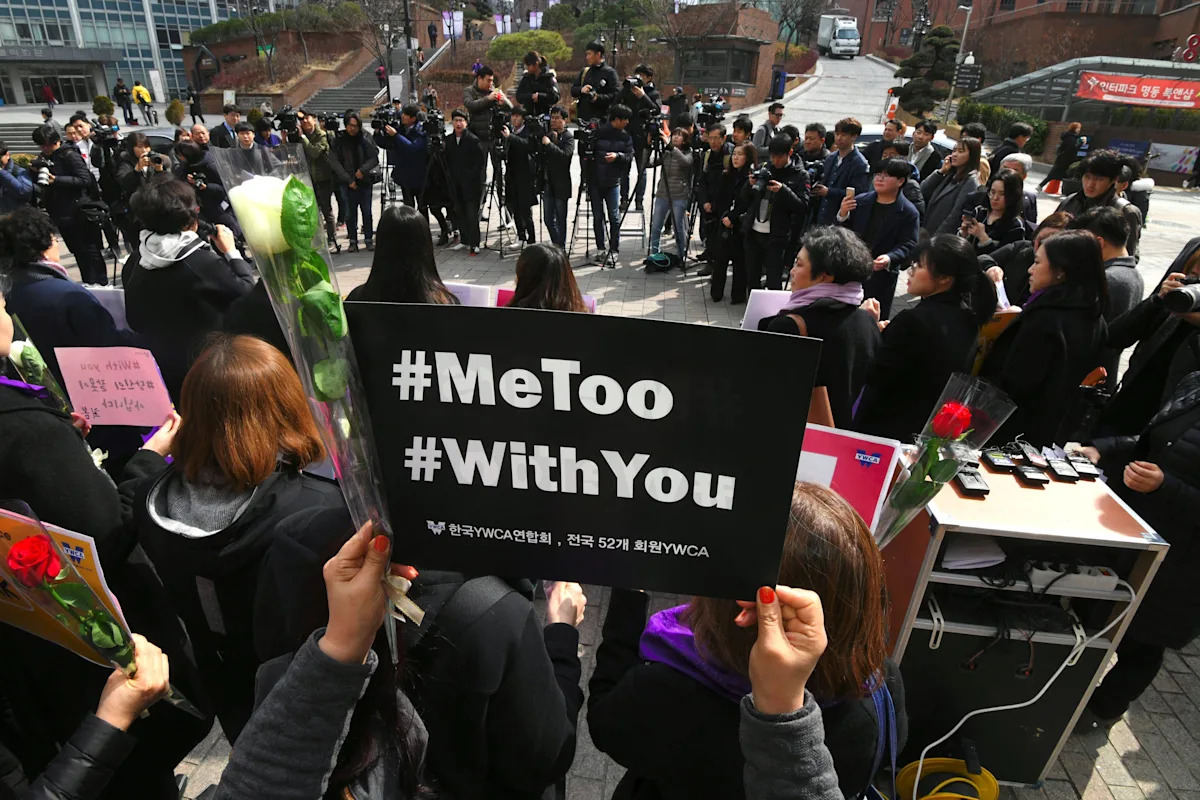
Seoul — A South Korean court acquitted on Wednesday a woman convicted six decades ago for defending herself against sexual violence, after she was inspired by the country’s #MeToo movement to challenge the ruling.
Choi Mal-ja was 19 in 1964 when she was attacked by a 21-year-old man in the southern town of Gimhae. He pinned her to the ground and repeatedly forced his tongue into her mouth, at one point blocking her nose to stop her from breathing, according to court records.
Choi managed to break free by biting off about half of an inch of his tongue.
In one of South Korea’s most contentious rulings on sexual violence, the aggressor received only six months in prison, suspended for two years, for trespassing and intimidation — but not attempted rape.
But Choi, now 79, was convicted of causing grievous bodily harm and handed a 10-month prison sentence, suspended for two years.
That decision was overturned Wednesday by the Busan District Court, which ruled that her actions “constitute justifiable self-defense” under South Korean law.
Choi’s actions at the time are now “deemed an attempt to escape an unjust infringement on her bodily integrity and sexual self-determination,” the court said in a statement sent to AFP.
The ruling overturns Choi’s 1965 conviction, when the court found her actions had “exceeded the reasonable bounds of legally permissible self-defense.”
Wearing a bright pink blazer, Choi beamed as supporters handed her multiple bouquets after the ruling. Women’s rights activists and her supporters celebrated, many visibly emotional, waving a placard that read, “Choi Mal-ja did it!”
“Sixty-one years ago, in a situation where I could understand nothing, the victim became the perpetrator, and my fate was sealed as a criminal,” Choi said at a news conference following the ruling. “For the victims who shared the same fate as mine, I wanted to be a source of hope for them.”
South Korean demonstrators hold banners during a rally to mark International Women’s Day, as part of the country’s #MeToo movement, in a file photo taken in Seoul, South Korea, March 8, 2018. / Credit: JUNG YEON-JE/AFP/Getty
Choi’s appeal gained momentum after the #MeToo movement, which took off in South Korea and fueled massive women’s rights protests and led to victories on issues ranging from abortion access to tougher penalties for spycam crimes, and a reckoning for the international K-pop music industry.
Choi filed for a retrial in 2020, but lower courts initially rejected her petition. After years of campaigning and an appeal, South Korea’s top court finally ordered a retrial in 2024.
Her lawyers said they now plan to seek compensation from the state for the damages she suffered from her conviction six decades ago.
NIH whistleblower says she was ousted after clashing with Trump officials on vaccines
How Israeli strike on Qatar could impact Gaza ceasefire talks
Producer price inflation report shows slight dip, fueling push for interest rate drop
Disclaimer: This news has been automatically collected from the source link above. Our website does not create, edit, or publish the content. All information, statements, and opinions expressed belong solely to the original publisher. We are not responsible or liable for the accuracy, reliability, or completeness of any news, nor for any statements, views, or claims made in the content. All rights remain with the respective source.
